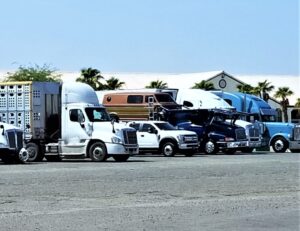Top Safety Concerns for the Trucking Industry in San Jose

If you have already been injured due to a truck accident in San Jose, then you are probably well aware of how dangerous these vehicles can be. Learning about new safety changes can provide you with hope, but what about your injuries? In this situation, it is probably best to get in touch with a qualified, experienced personal injury attorney. These legal professionals can help you file a personal injury claim, which can result in a considerable settlement. This compensation is vital if you want to cover your medical expenses, missed wages, and any other damages you might have incurred.
Ideally, you should get in touch with a law firm that specializes in truck accidents. These legal professionals have plenty of experience with these cases, and they can help you move forward in an efficient manner. Mary Alexander & Associates has a wealth of experience with truck accidents, and this firm has helped many injured victims pursue justice and receive adequate settlements.
Reluctance to Implement New Safety Technology
It is an exciting time for the trucking industry. There are countless examples of new technology that could help save lives. Active Brake Assist, also known simply as ABA, has the potential to transform the trucking industry completely. It is common knowledge that tractor-trailers take much longer to come to a complete stop compared to normal vehicles. ABA can help address this key vulnerability, which can often lead to serious crashes. This system involves a radar that scans for hazards up ahead. It can track 40 objects at the same time, identifying and prioritizing the most pressing concerns. If the driver fails to respond to one of these threats in time, an alarm will sound, notifying the driver. If no action is taken, the system will automatically trigger the brakes.
Another example of new safety technology is electronic stability control. Also known as ESC, this system automatically detects the risk of directional instability. If the driver is unable to intervene in time, the system takes control and attempts to avoid rollovers. There is also forward collision warning, and this technology has seen use in consumer vehicles for some time now.
Of course, the big topic on everyone’s minds these days is driverless technology. While this may be able to make life more convenient for the average motorist, it could have a much greater impact on the trucking industry as a whole. Driverless trucks would not be subject to the same safety concerns as human-operated trucks. Driver fatigue would no longer be a concern, and the inescapable factor of human error would be significantly mitigated.
So, if all of this new safety technology has the potential to drastically reduce truck accidents, then what is the issue? The problem is that in many cases, this technology just is not being implemented. The industry has a history of being skeptical about changes. This skepticism not only applies to safety technology, but also to new safety regulations proposed by the government.
Industry experts have long been arguing that North America is lagging far behind Europe in terms of trucking safety measures. Our European cousins have already implemented this new technology in trucks across the continent, and many of our own trucking companies are still using extremely outdated vehicles by comparison. Active Brake Assist has been around since well before 2016, so why isn’t this a standard feature on all trucks?
There are a number of reasons for this reluctance. First of all, trucking companies may be concerned about the costs of implementing this new technology. However, it is generally believed that the cost of this technology pays for itself because it helps avoid costly accidents. Another key concern is that driverless technology will destroy jobs for average truckers.

Driver Shortages – Another key concern is the widespread truck driver shortage that has engulfed the entire nation. Make no mistake, America depends on the trucking industry to keep the heart of its economy beating. That industry is built on a foundation of hard-working truck drivers. When there is a sudden shortage of truck drivers, this can lead to all kinds of concerns.
Driver shortages mean that companies are rushing to get new drivers behind the wheel. This can result in accelerated training regimes that do not adequately prepare these new drivers for the various hazards they may face. Even though we are facing a truck driver shortage in California and across the nation, this does not mean we can relax safety training standards.
Enlist the Help of a Qualified Attorney Today
If you have been searching the San Jose area for legal help after suffering injuries from a truck accident, look no further than Mary Alexander & Associates. We have dealt with countless truck accident cases in the past, and we can help you pursue justice. Negligent truck drivers and operators should be held accountable for negligence, especially if their behavior has led to the injury of innocent motorists. Book your consultation today, and we can help you get the compensation you need to cover medical expenses, missed wages, and any other damages.
